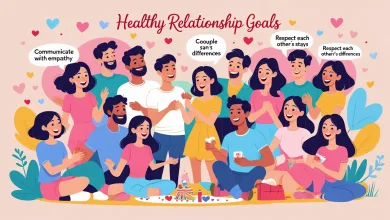Is a “Marriage of Convenience” So Bad?

We’ve all heard the phrase “marriage of convenience” whispered with disapproval, but are these pragmatic partnerships really deserving of such judgment? Let’s dive into the complex world of marriages built on practical foundations rather than passionate love—and why they might be more valid than you’ve been led to believe.
The Misunderstood Marriage: Defining What We Really Mean
When someone mentions a “marriage of convenience,” what pops into your mind? Gold diggers? Green card seekers? The wealthy elderly person and their suspiciously young spouse? Hold up—there’s so much more to this concept than these stereotypes suggest.
A marriage of convenience, at its core, is a partnership entered into primarily for practical benefits rather than romantic love. And guess what? They’ve been around since, well, marriage itself. Throughout history, marriages were primarily economic and social arrangements between families. The whole “marrying for love” thing? That’s actually a relatively modern concept that would have seemed downright bizarre to our ancestors, who understood marriage as fundamentally a practical institution.
Historical Context: Love as a Modern Luxury
Let’s time-travel for a sec. In medieval Europe, marriages among nobility were essentially business deals, designed to merge estates, forge political alliances, or ensure succession. Nobody was clutching pearls about whether Lord So-and-So had butterflies in his stomach when Lady What’s-Her-Name walked down the aisle.
“For most of history, marriage was primarily an economic and political contract between two families,” explains Stephanie Coontz, author of Marriage, a History: How Love Conquered Marriage. “People didn’t marry because they were in love. They married to increase their property, join fortunes, establish political alliances, and have children.”
Even in more recent centuries, practical considerations often outweighed romantic ones:
- Financial security and stability
- Social status and mobility
- Creating familial alliances
- Ensuring inheritance lines
- Protection in societies where being unmarried was economically or socially disadvantageous
In many ways, our modern obsession with marrying solely for love is the historical outlier, not the pragmatic approach that preceded it.
The Modern Convenience Marriage: Not What You Think
Today’s marriages of convenience don’t necessarily look like their historical counterparts, but they continue to exist for similar practical reasons—along with some new ones. And contrary to popular belief, they’re not always about deception or taking advantage.
Consider these contemporary motivations:
- Access to healthcare benefits or insurance
- Immigration and citizenship opportunities
- Financial stability or tax benefits
- Co-parenting arrangements
- Companionship without the expectation of romance
- Fulfilling cultural or family expectations
Dr. Bella DePaulo, social psychologist and author of Singled Out, points out: “There are many reasons people may choose to marry beyond romantic love, and many of these reasons are perfectly legitimate and even admirable.”
Take Sarah and Miguel (names changed), who married after being friends for years. Sarah needed health insurance for a chronic condition, and Miguel’s employer offered excellent benefits to spouses. “We care deeply for each other, just not romantically,” Sarah explains. “We’re best friends who support each other. Why is that any less valid than marrying someone you’re sleeping with?”
The Surprising Benefits of Pragmatic Partnerships
Here’s where it gets interesting: some research suggests that marriages of convenience might have certain advantages over their love-based counterparts. Yeah, I said it.
Clearer Expectations
When two people enter a marriage with eyes wide open about its practical nature, there’s often extraordinary clarity about expectations. There’s no hazy “love will conquer all” mentality—instead, there’s honest communication about what each person brings to the table and hopes to gain.
“When couples enter marriage with practical goals clearly defined, they often avoid the disillusionment that can come when romantic love inevitably evolves or fades,” says Dr. Jennifer Rhodes, relationship psychologist. “They’ve built their foundation on something more concrete than feelings, which can fluctuate.”
Potentially Greater Stability
While it might seem counterintuitive, marriages founded on practical considerations sometimes demonstrate remarkable stability. Without the rollercoaster of intense emotions, couples can make decisions more rationally and work through problems as partners rather than wounded lovers.
A study from the National Bureau of Economic Research found that arranged marriages—which share some similarities with marriages of convenience—often report higher levels of satisfaction in later years than love marriages, which tend to show declining satisfaction over time.
Room for Growth
Perhaps most surprisingly, many marriages that begin as arrangements of convenience develop genuine emotional bonds over time. Shared experiences, mutual respect, and working toward common goals can foster deep connections that evolve naturally, without the pressure of living up to romantic ideals.
“Love can grow where respect and partnership already exist,” observes relationship counselor Maria Gonzalez. “Sometimes the most enduring love stories begin not with passion, but with pragmatism.”
The Ethical Questions: When Is It Okay?
Let’s be real—not all marriages of convenience exist in an ethical gray area. Some clearly cross lines, particularly when deception or exploitation is involved. But how do we distinguish between the problematic and the perfectly acceptable?
Consent and Transparency
The most crucial factor is whether both parties fully consent and understand what they’re entering into. Are both individuals aware of the arrangement’s nature? Do they both benefit in ways meaningful to them? Is there mutual respect?
“Ethical marriages of convenience require complete transparency between partners,” explains ethics professor Dr. Thomas Wright. “The problems arise when one party believes they’re entering a love-based union while the other has purely practical motivations.”
Legal Considerations
Some marriages of convenience skirt legal boundaries, particularly those entered solely for immigration benefits. Most countries have laws against marriage fraud, which can carry serious penalties including fines and imprisonment.
However, the legal definition of marriage fraud typically centers on intent to deceive government authorities—not on whether the couple is romantically in love. Two people who genuinely intend to build a life together, even if primarily for practical reasons, aren’t necessarily committing fraud.
Impact on Others
Another consideration is how the arrangement affects others, particularly children. Research suggests that children fare best in stable, low-conflict homes, regardless of whether their parents are romantically involved. In fact, some parents in marriages of convenience report that their clarity about roles and expectations benefits their children.
“What children need most is stability, safety, and loving care,” notes child psychologist Dr. Elena Ramirez. “A peaceful, respectful marriage of convenience may provide a better environment than a volatile love match.”
Common Misconceptions About Marriages of Convenience
Let’s bust some myths, shall we?
Myth: They’re Loveless Unions
While romantic love might not be the foundation, many marriages of convenience involve deep care, friendship, and even other forms of love. Companionship, mutual respect, and shared goals can create meaningful bonds that don’t fit neatly into our limited definition of “true love.”
Myth: They Always Involve Exploitation
Not all marriages of convenience involve a power imbalance or exploitation. Many are entered into by equals who both benefit from the arrangement and have negotiated terms that work for both parties.
Myth: They’re Doomed to Unhappiness
Some people in marriages of convenience report higher satisfaction than those in traditional marriages. Without unrealistic romantic expectations, they’re less likely to feel disappointed when the initial passion inevitably fades.
Myth: They’re Rare
They’re far more common than you might think! From the couple who married to save on taxes to the pair who tied the knot for insurance benefits, pragmatic marriages exist all around us—they’re just not always advertised as such.
Real Stories: When Practical Marriages Work
Maria and Joao married after knowing each other for just three months. She needed to remain in the country to finish her degree; he needed a roommate to share expenses. Twenty years later, they’re still together. “We grew to love each other,” Maria shares. “But it was the practical foundation that got us through the tough times when feelings alone might have failed us.”
Then there’s Alan and David, who married primarily so Alan could make medical decisions for David during a serious illness. “We were close friends who cared deeply for each other,” Alan explains. “The romance came later, but our commitment to each other’s wellbeing was there from the start.”
These stories challenge our assumptions about how valid relationships should form and evolve. They remind us that human connections are complex and multifaceted—rarely fitting into the neat categories we try to impose.
Is a Marriage of Convenience Right for You?
If you’re considering a marriage based primarily on practical benefits, here are some important questions to ask yourself:
- Are both you and your potential spouse fully aware of and comfortable with the arrangement’s nature?
- Have you discussed expectations regarding living arrangements, finances, and potential future relationships?
- Are you prepared for the legal obligations that come with marriage?
- Have you considered the long-term implications?
- Do you have genuine respect and care for this person, even if romantic love isn’t the foundation?
A successful marriage of convenience, like any marriage, requires honest communication, mutual respect, and ongoing consent. Without these elements, even the most pragmatic partnership is likely to fail.
FAQs About Marriages of Convenience
Is a marriage of convenience legal? Yes, marriages of convenience are legal as long as they don’t involve fraud (such as lying to immigration authorities). The law doesn’t require that couples be romantically in love to marry.
Can a marriage of convenience turn into a love match? Absolutely! Many partnerships that begin for practical reasons develop romantic elements over time as the couple builds a life together.
How common are marriages of convenience today? While statistics are difficult to gather (since many couples don’t advertise their motivations), researchers estimate that practical considerations play a primary role in a significant percentage of marriages worldwide.
What’s the difference between an arranged marriage and a marriage of convenience? Arranged marriages are typically organized by families with the intention of establishing a traditional marital relationship, while marriages of convenience are usually arranged by the individuals themselves specifically for practical benefits.
Can you get divorced easily from a marriage of convenience? The same divorce laws apply regardless of why you married. However, couples in marriages of convenience sometimes find separation less emotionally complicated if romantic expectations weren’t part of the original agreement.
Final Thoughts: Reframing Our Understanding
Perhaps it’s time to reconsider our cultural judgment of marriages of convenience. In a world where nearly 50% of romantic marriages end in divorce, is it really so outrageous to suggest that building a partnership on practical foundations might sometimes be the wiser choice?
“The problem isn’t marriages of convenience,” suggests relationship therapist Dr. James Chen. “It’s our narrow definition of what constitutes a ‘real’ marriage. Humans have always formed partnerships for various reasons—survival, companionship, practical support, raising children. The relatively recent expectation that marriage must be based on romantic love above all else has set many couples up for disappointment.”
Is a “marriage of convenience” so bad? Like most complex questions, the answer is: it depends. When entered into with honesty, mutual consent, and respect, such marriages can offer stability, companionship, and practical benefits that enrich both partners’ lives. And sometimes—perhaps more often than we realize—they can evolve into something that even the most dedicated romantic would recognize as love.
After all, isn’t the convenience of having a trusted companion through life’s journey one of marriage’s greatest gifts, regardless of how that journey began?






